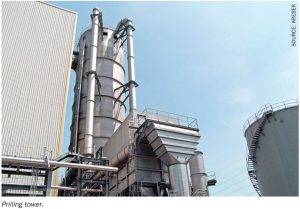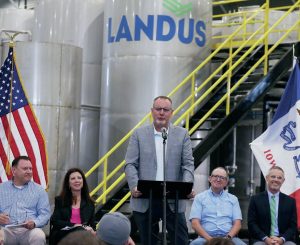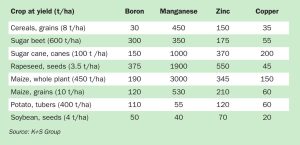
The Sulphur Institute at 65
The Sulphur Institute celebrates its 65th anniversary this year. In this article the organisation describes its lasting legacy and global impact.

The Sulphur Institute celebrates its 65th anniversary this year. In this article the organisation describes its lasting legacy and global impact.

The past few years have seen a rapid increase in attempts to generate ammonia from streams of nitrate polluted wastewater, but how practical are these methods?

UreaKnowHow.com reviews the main production options for incorporating sulphur into urea, the world's most widely applied commodity fertilizer.

Dr M.P. Sukumaran Nair, Director of the Centre for Green Technology & Management, Cochin, India and former Secretary to the Chief Minister of Kerala discusses the challenges facing India’s agriculture and fertilizer industry.

While there is still a considerable push for use of biomass waste as a lower carbon feedstock for chemical production via gasification to syngas, biological processes such as fermentation are increasingly gaining traction as an alternative.

Tessenderlo Kerley International (TKInt) is a major global supplier of water-soluble sulphate of potash plant nutrition and the leading producer of thiosulphate-based fertilizers. In an exclusive interview, we speak to Nicolas White the company’s Portfolio & Knowledge Director, about recent strategic developments. These include major investments in new production, transshipment and storage capacity, production offtake agreements, and product sales and marketing rights.

Landus has invested $15 million in a 75,000 square foot fertilizer manufacturing and distribution plant in Boone, Iowa. The project was backed by a $5 million grant from the US Department of Agriculture’s Fertilizer Production Expansion Program (FPEP).
SGS Sulphur Experts has appointed Patrick Beck as the new CEO. Beck brings over two decades of leadership experience in the oil and gas industry and what Sulphur Experts describe as “a wealth of strategic insight and operational excellence to the team, steering the company towards continued innovation and engineering excellence.”

Today’s agronomists and farmers recognise the importance of boron in agriculture. But what do we know about why plants need boron and how boron deficiency affects crops? Fabiano Silvestrin, Principal Advisor, Global Market Development, Agriculture, at U.S. Borax has some answers.

Dr Setareh Jamali Jaghdani and professor Jóska Gerendás of K+S Group outline how micronutrient management, by positively influencing plant physiology and development, helps maximise crop yields.